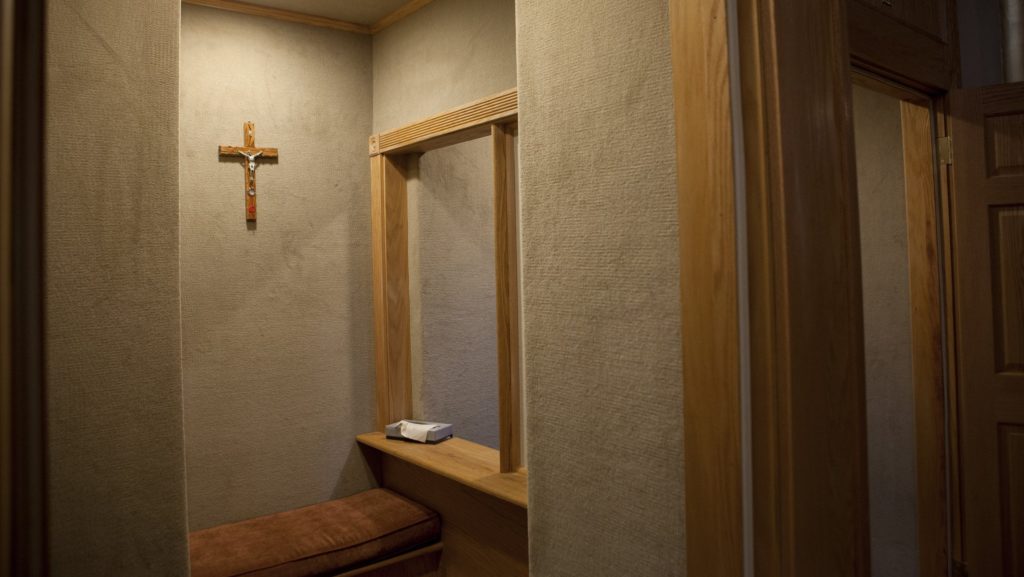Legislation that would require clergy to report child abuse or neglect in Washington state was signed into law by Democratic Gov. Bob Ferguson May 2.
While some have argued the bill closes an important omission from the state's list of mandatory reporters, others have expressed concern that without exceptions for clergy-penitent privilege, the law could place Catholic priests at odds with civil law in order to uphold church law regarding the seal of the confessional.
The legislation, Senate Bill 5375, sponsored by Democratic Sen. Noel Frame of Seattle will make members of the clergy mandatory reporters, or people required by law to report suspected or known instances of child abuse or neglect, without an exception to the requirement for sacramental confessions. Other mandatory reporters in Washington state include school personnel, nurses, social service counselors and psychologists.
In a May 2 statement, Bishop Thomas A. Daly of Spokane, Washington, said, "I want to assure you that your shepherds, bishop and priests, are committed to keeping the seal of confession -- even to the point of going to jail. The Sacrament of Penance is sacred and will remain that way in the Diocese of Spokane."
"For those legislators who question our commitment to the safety of your children, simply speak with any mom who volunteers with a parish youth group, any Catholic school teacher, any dad who coaches a parochial school basketball team or any priest, deacon or seminarian, and you will learn first-hand about our solid protocols and procedures," he said.
"The Diocese of Spokane maintains an entire department at the Chancery, the Office of Child and Youth protection, staffed by professional laypeople," he continued. "We have a zero-tolerance policy regarding child sexual abuse. Our goal is do everything within our power to keep your children safe while we attempt to lead them to know and love Jesus Christ who commanded, 'let the children come to me and do not hinder them.'"
Bishop Daly added, "An important element to the greatness of America is our Constitutional commitment to religious freedom."
In a February statement about her bill to make clergy mandatory reporters, Frame said, "It's long past time that the Legislature steps up, closes this loophole, and protects children."
"I know this is a tough subject for many of my colleagues, especially those with deep religious views," she said. "I respect that, but this bill is about the separation of church and state. This bill is about the state's secular responsibility to the public interest of protecting children. That's the most important thing we do here."
Similar bills failed in the Legislature in the two previous years after lawmakers could not reach consensus on whether to make the exception.
The Washington State Catholic Conference opposed the particular version of the legislation that was approved by the Legislature, urging its supporters to tell their lawmakers to reject it "unless it is amended to provide a narrow exception for confidential communications between a member of the clergy and a penitent person of faith."
"The majority of states that include clergy as mandatory reporters include an exemption for confidential communications, demonstrating that the states' interests in child protection can be achieved without violating the right to free exercise of religion," the conference said in an April advocacy bulletin.
The conference, which is the public policy arm of the state's Catholic bishops, has stated it would support such legislation with an exemption for the sacrament of confession. A spokesperson for the conference did not immediately respond to a request for comment from OSV News.
Most states that specifically include clergy in their mandatory reporting laws provide some clergy-penitent privileges to varying degrees, according to data from the Child Welfare Information Gateway, which operates under the Children's Bureau at the U.S. Department of Health and Human Services.
After signing the bill, Ferguson told reporters that he is Catholic and sees the legislation as "pretty straightforward."
"My uncle was a Jesuit priest for many years, (I've) been to confession myself -- and so I'm very familiar with that," he said, according to KXLY-TV. "I felt this was important legislation and protecting kids is first priority."
The Catechism of the Catholic Church states that priests are strictly forbidden from divulging what penitents tell them during confession, which is part of the sacrament of reconciliation, and states that information a penitent divulges is under "seal."
"Given the delicacy and greatness of this ministry and the respect due to persons, the Church declares that every priest who hears confessions is bound under very severe penalties to keep absolute secrecy regarding the sins that his penitents have confessed to him," the catechism states.

